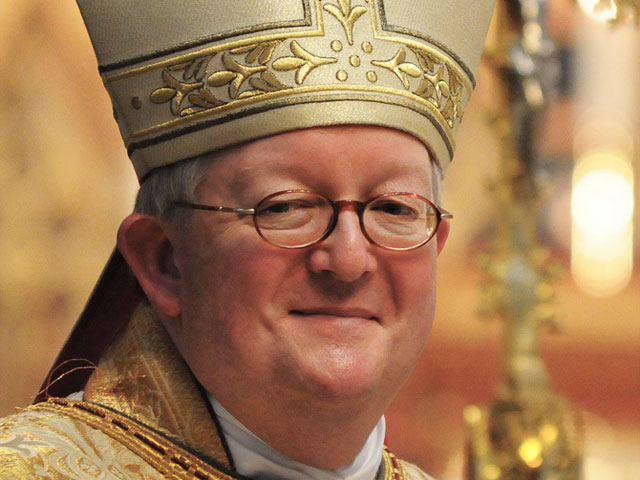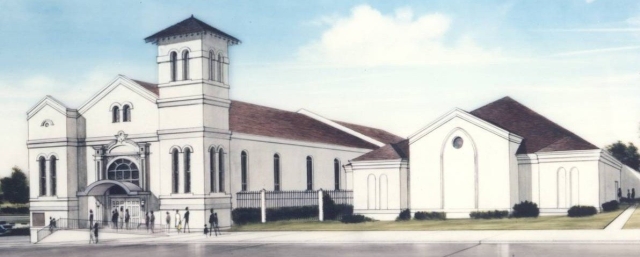Let’s start with an informal quiz.
Raise your hand if you think it would be acceptable for a Muslim school to fire a teacher who, after years in the classroom, went public with her commitment to Zionism?
Let’s try another: How about a teacher at an Episcopal High School who turned out to be an undercover representative of an evangelical Protestant ex-gay group?
One more: How about a Jewish academy firing a teacher who, in a public ceremony, was ordained by the Southern Baptists as a Messianic Jewish rabbi?
How many hands to we have up in the air, at this point?
Actually, the key to each of these scenarios is whether these faculty members had signed any kind of covenant in which she or he agreed to support (or at the very least, agreed not to publicly oppose) the doctrines advocated by the religious school or the denomination or movement that supports it.
The key word is “covenant.” Religious organizations are allowed to hire and fire people, while advocating their own doctrines.
If you have questions about that, check out that recent U.S. Supreme Court case called Hosanna-Tabor Evangelical Lutheran Church and School v. EEOC, the one that socked the current Justice Department team with a 9-0 verdict in favor of the church and its school.
With that in mind, let’s look for the crucial piece of information that is missing in this oh-so-familiar story from The Sun in San Bernardino County. The story hook is that a veteran teacher — 17 years in the classroom — was fired by a Catholic school after the public rite in which he married his long-time male partner.
While school representatives declined comment on the matter, an attorney representing 45-year-old Ken Bencomo says he was fired because of the same-sex ceremony.
“The reason given was that the marriage occurred and the school’s position was that it violated church teachings,” said Chatsworth attorney Patrick McGarrigle.
Bencomo, 45, was head of the English department at St. Lucy’s Priory High School in Glendora, but also worked as a yearbook moderator and dance coach. Students say they were aware of Bencomo’s sexual orientation.
Note that it is merely the school’s position or opinion that this same-sex marriage commitment violated church teachings — as opposed to sacramental theology repeatedly stated by the Roman Catholic Church for a millennium or two.
There is no doubt, of course, that the rite violated Catholic teachings and doctrine.
But as I stated earlier, this is not the key question in the current legal climate. And what is the key question?
Does this school have a covenant that is signed by, at the very least, faculty and staff? Frequently, these doctrinal and moral covenants would also be signed by students and parents. The whole goal is to define the school as a voluntary association. No one has to teach there. No one has to study there. It’s an association in which people choose to take part in a community that is defined — in writing — as Catholic in a meaningful sense of that word.
Is that the case at St. Lucy’s school? That’s the big question. I see no evidence in the story that anyone asked it. Readers are told:
Sister Helen Dziuk, assistant principal at St. Lucy’s, declined comment and referred inquiries to the school’s attorney, Joseph Stark. St. Lucy’s officials later issued a written statement, saying the school plans to continue educating students “in the tradition of the Catholic faith.”
“As a Benedictine school, St. Lucy’s is a community for those who wish to express Christian values in education and develop person and academic excellence,” the statement said.
The story does a great job of showing that some students and, perhaps, school staff oppose church teachings being defended in this manner. The big issue, in Catholicism, is what the local bishop says in this case. Thus, readers learn:
The Diocese of San Bernardino said its Catholic schools prohibit discrimination against teachers or other school employees based on their lifestyle choices.
“However, if a teacher or school employee makes a public display of behavior that is counter to church teaching — such as homosexuality, sex outside of marriage, having a child outside of marriage — that can impact their employment status,” said John Andrews, diocese spokesman.
School policies outlined by the Archdiocese of Los Angeles say a staff member can be counseled or disciplined if he or she engages in “behavior counter to the moral teachings and standards of the church.”
So, in effect, the diocese has been living with a don’t ask, don’t tell policy on moral theology? There is no doctrinal covenant of any kind being used in this diocese and, thus, at this school?
There are a few holes to fill in this story, methinks.











